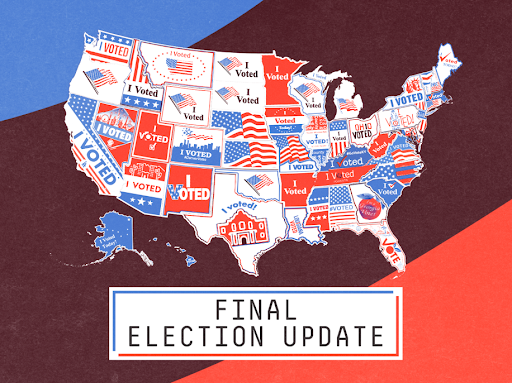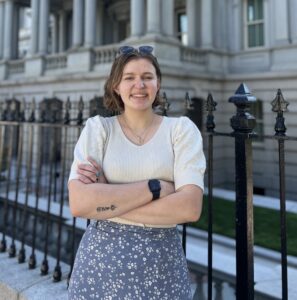
By Lauren Ellis, NWPC Political Planning Intern
The 2022 midterms continued the ongoing trend of more women getting elected across the country. There will be 149 women in the 118th Congress, with 22 of them being elected for their first term, including NWPC endorsee Marie Glusenkamp Perez (WA-03). The total number of women serving in Congress is not the only record being broken – the 118th Congress will see the highest number of Black and Latina women elected. Records are also being broken again at the state level with 2,376 women being elected to state legislatures according to CAWP. 12 women were elected as Governors which is also a new record, and including those 12 governors there will be 93 women elected to a statewide executive office. 50 of the incredible female candidates endorsed by the NWPC won their elections.
Electing another historic number of women isn’t the only important takeaway. In Montana, Vermont, California, Michigan, and Kentucky people faced the choice to protect or deny access to abortion, and and each state chose to protect abortion access. Additonaly, gubernatorial candidates Katie Hobbs in Arizona and Governor Tony Evers in Wisconsin who promised to protect abortions in states where there are battle of trigger laws won their races. With CNN’s exit poll highlighting the fact abortion was on voters mind. It was the second most important issue following the economy. 60% of respondents believe abortion should be legal and 61% of respondents were angry or dissatisfied with the overturning of Roe V Wade.
Beyond the historic number of women who were elected this year, we saw women, and especially young women, voting and registering to vote in record numbers. National voter registration increased by 332%. Other states like Michigan, Pennsylvania, Tennessee, Arizona, and Texas saw over a 500% increase in voter registration with Kansas seeing a 1000% increase. Pennsylvania saw more women under the age of 40 turnout and vote than in the last midterm election. Women of all ages across the country voted for pro-choice democrats at higher rates than they did in previous year. The Dobbs decision incentivized women to register to vote and follow through on election day.

Lauren Ellis is the Fall 22 NWPC Political planning intern. She is an MPA candidate at American University with a BA in Women’s gender and sexuality studies from Rutgers University who has focused on the intersection of gender and politics







